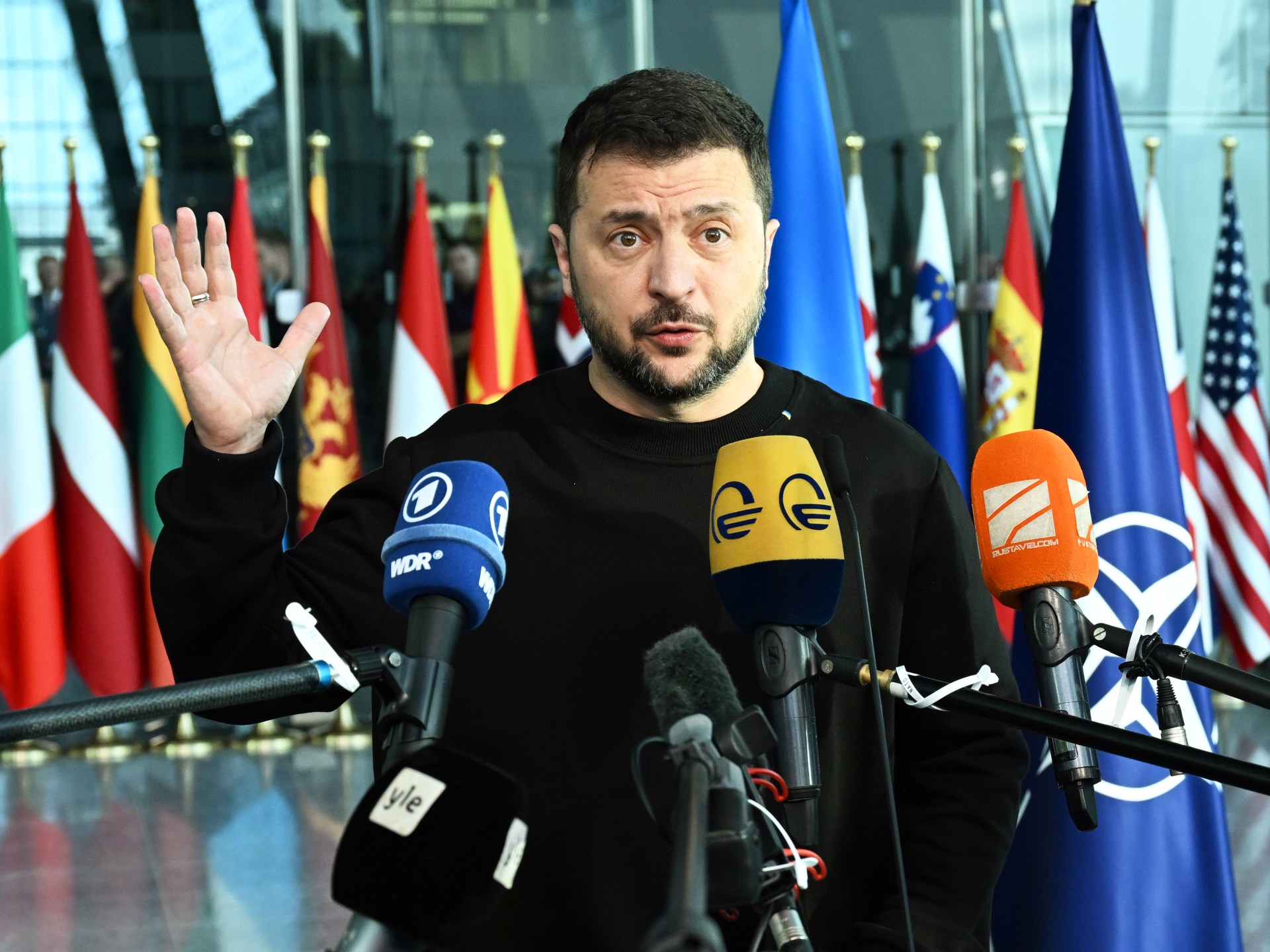Ukrainian President Volodymyr Zelensky (Anatolia)
Kiev strongly criticized on Sunday Pope Francis' call to negotiate with Russia to end the war in Ukraine, stressing that it would "never" raise the white flag against Moscow.
Ukrainian President Volodymyr Zelensky said in his daily press statement that “Russian killers and executioners are not penetrating further into Europe, only because the Ukrainians are repelling them with weapons in their hands and under the blue and yellow flag” of Ukraine.
Without mentioning the Pope's name, Zelensky added, "This is where the Church should be, together with the people. Not 2,500 kilometers from here, with virtual mediation between a person who wants to live and a person who wants to destroy him."
Earlier, Ukrainian Foreign Minister Dmytro Kuleba said in a post on the “X” platform, “Our flag is yellow and blue. It is the flag for which we live, die, and win. We will never raise other flags.”
"When it comes to the white flag, we know the Vatican's strategy in the first part of the 20th century. I call for avoiding repeating the mistakes of the past and supporting Ukraine and its people in their struggle for life," Kuleba added.
This appears to be a reference to the dealings of some Catholic Church leaders with Nazi forces during World War II.
However, he expressed his hope that the Pope would find "the opportunity to make an ecclesiastical visit to Ukraine."
Pope Francis called on the Ukrainians to admit defeat and called for negotiations with the Russians (Reuters)
Admitting defeat
In an interview broadcast on Saturday, the Pope called for negotiations between Russia and Ukraine, warning against “the shame of negotiating before things get worse.”
He added, "I believe that the strongest are those who see the situation, think about the people, and have the courage to raise the white flag and negotiate."
The Pope fueled the anger by saying, "When you see that you are defeated, and that things are not going well, you must have the courage to negotiate."
The Pope's statements came more than two years after the Russian war on Ukraine and its army's control of about 20% of its territory.
Source: French

